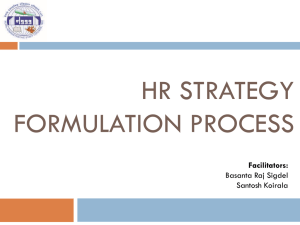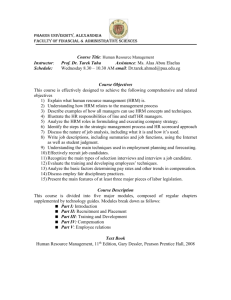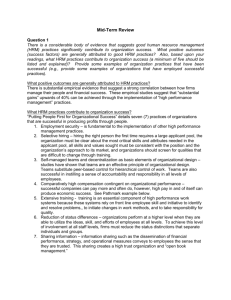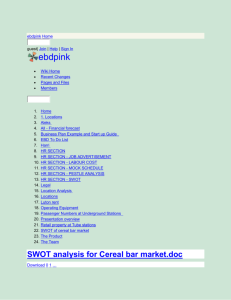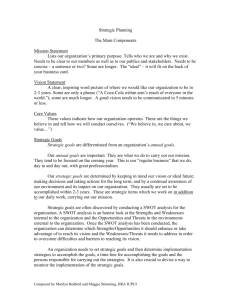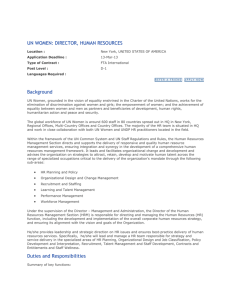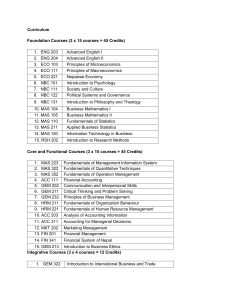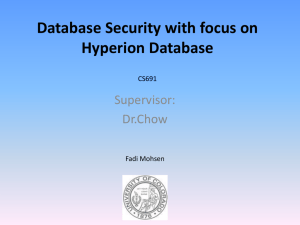Human Resource Management Steps in developing HRM strategy
advertisement
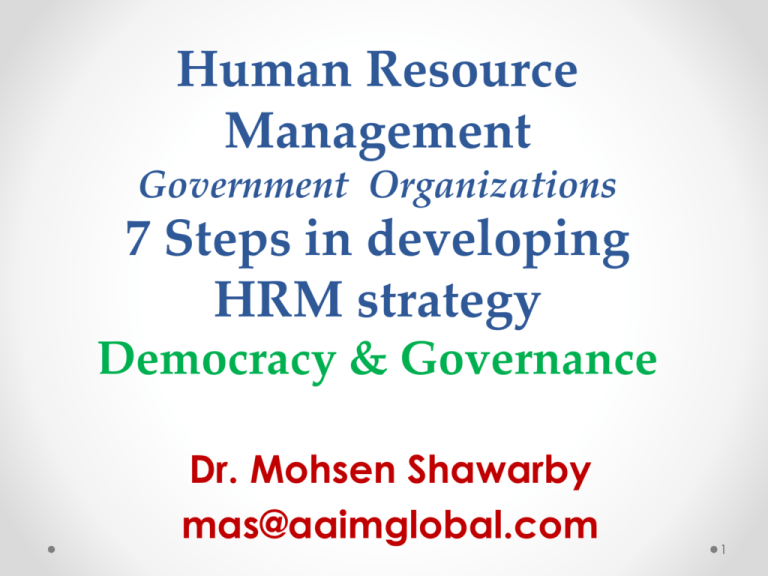
Human Resource Management Government Organizations 7 Steps in developing HRM strategy Democracy & Governance Dr. Mohsen Shawarby mas@aaimglobal.com 1 Ultimate HR Mission 1. Align electroic system with paper records 2. Archival & HR system combined. 3. Strategic Planning and Mgt 4. Control Budgeting, Planning, Control, Security, Mgmt 5. Employee Assessment Reports 6. Ensure Job Description match employee skills 7. Recruitment and selection 8. Time & Attendance control 9. Employee benefits management, planning 10.Expense reports management 11.Employee training needs and skills management 12.Develop HRM strategy for continuity 2 Step 1 Understand your Gov business strategy. Highlight the key driving forces of your gov agency. What are they? e.g. technology, tranparency, services, and citizens. What are the implications of the driving forces for the employees? What is the fundamental employee contribution to gov performance? 3 Step 2 Develop a Mission Statement that relates to the employees side of the gov. Do not be put off by negative reactions to the words or references to idealistic statements - it is the actual process of thinking through the issues in a formal and explicit manner that is important. What do your employees contribute? 4 Step 3 Conduct a SWOT analysis of the gov organization Focus on the internal strengths and weaknesses of the people side. Consider the current skill and capability issues. Research the external environment. Highlight the opportunities and threats relating to the people side. What impact will/ they have on gov performance? Consider skill shortages and training needs? The impact of new technology on staffing levels? Review the capability of your personnel department. Complete a SWOT analysis of the department consider in detail the department's current areas of operation, the service levels and skill levels of your personnel staff. 5 Step 4 Conduct a detailed human resources analysis Concentrate on the organization's COPS (culture, organization, people, HR systems) Consider: Where you are now? Where do you want to be? What gaps exists between the reality of where you are now and where you want to be? Exhaust your analysis of the four dimensions. 6 Step 5 Determine critical people issues Go back to the business strategy and examine it against your SWOT and COPS Analysis Identify the critical people issues namely those people issues that you must address. Those which have a key impact on the delivery of your business strategy. Prioritize the critical people issues. What will happen if you fail to address them? Remember you are trying to identify where 7 you should be focusing your efforts and Step 6 Develop consequences and solutions For each critical issue highlight the options for managerial action generate, elaborate and create - don't go for the obvious. This is an important step as frequently people jump for the known rather than challenge existing assumptions about the way things have been done in the past. Think about the consequences of taking various courses of action. Consider the mix of HR systems needed to address the issues. Do you need to improve 8 What are the implications for the business and the personnel function? Once you have worked through the process it should then be possible to translate the action plan into broad objectives. These will need to be broken down into the specialist HR Systems areas of: employee training and development management development organization development performance appraisal employee reward employee selection and recruitment manpower planning communication 9 Step 7 Implementation and evaluation of the action plans The ultimate purpose of developing a human resource strategy is to ensure that the objectives set are mutually supportive so that the reward and payment systems are integrated with employee training and career development plans. There is very little value or benefit in training people only to then frustrate them through a failure to provide ample career and development opportunities. 10 Human Resource Management 7 Steps in developing HRM strategy Dr. Mohsen Shawarby mas@aaimglobal.com 11

